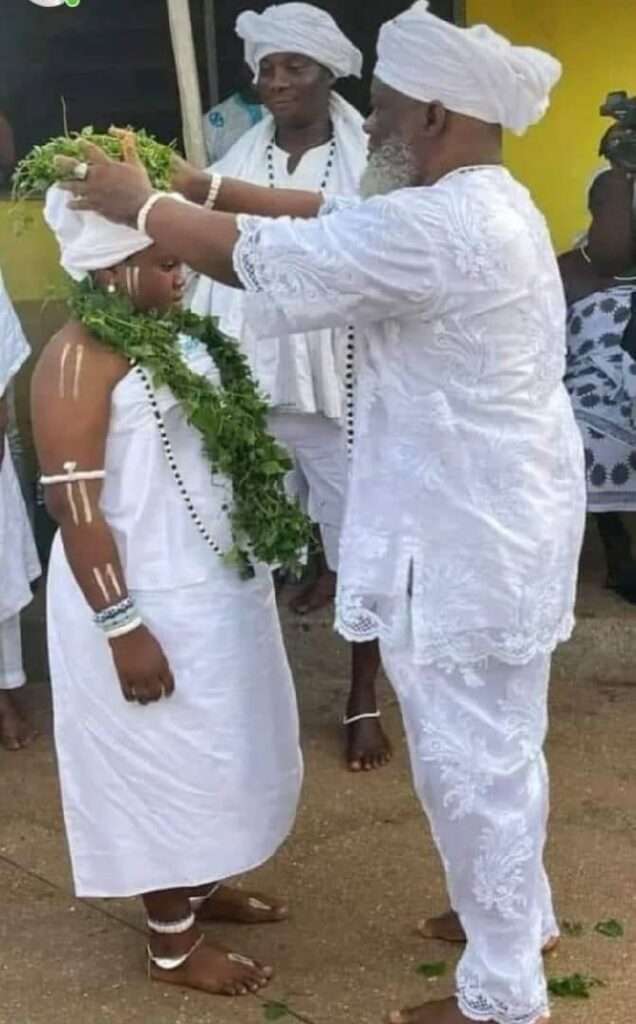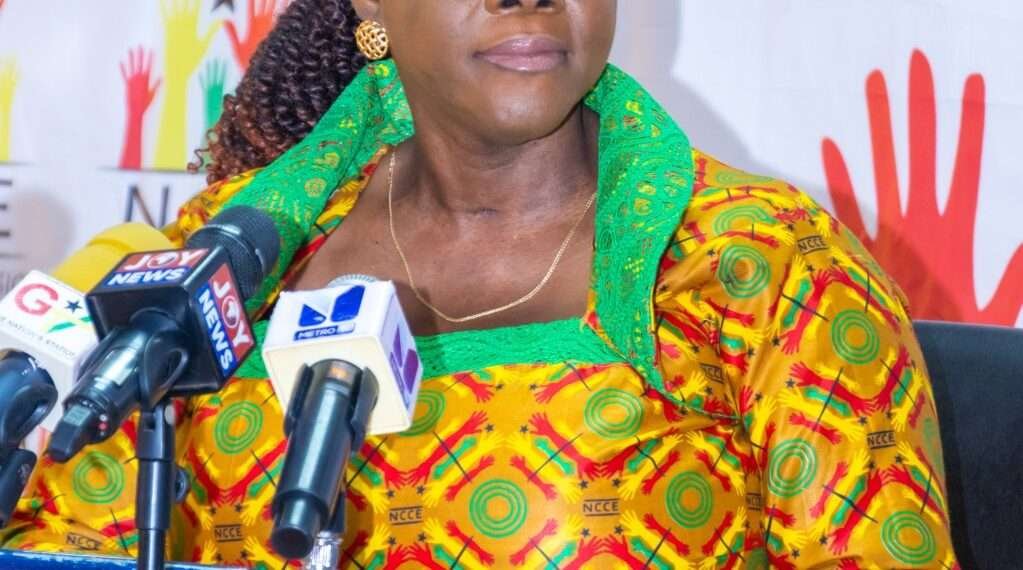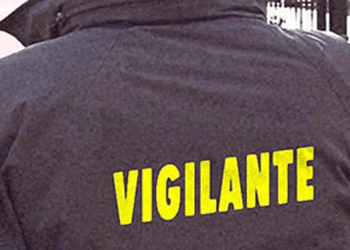The National Commission for Civic Education (NCCE) has expressed its disapproval over the recent controversial marriage involving a 12-year-old girl and a 63-year-old Gborbu Wulomo of Nungua, Nuumo Borketey Laweh Tsuru XXXIII.
The NCCE described the marriage as “illegal and unconstitutional,” citing the Children’s Act of 1998, which states that the minimum age for marriage is eighteen years.
“The NCCE wishes to remind the Ga Traditional Council that the Children’s Act, Act 560 of 1998, Section 13, (1&2) provides that ‘The minimum age of marriage of whatever kind shall be eighteen years.’ It is also worth pointing out that the same section of the Children’s Act says that ‘No person shall force a child (a) to be betrothed; (b) to be the subject of a dowry transaction; or (c) to be married.’ While the Nungua Traditional Council contends that this union is voluntary, it is unclear to the NCCE how a pre-pubescent, pre-teen minor can consent to such an arrangement.”
Kathleen Addy (Ms.) Chairman, NCCE
The NCCE further noted that, for over a century, the courts have held that traditional practices that are contrary to “natural justice, equity, and good conscience” are outlawed.
The NCCE urged the Nungua Traditional Council to review its traditional practices to bring them in line with the laws and 1992 Constitution of Ghana, and to refrain from actions that may harm the youth of Nungua.
The Commission also called for the intervention of the National and Regional Houses of Chiefs, the Ministry of Gender, Children and Social Protection as well as the Department of Social Welfare to ensure that the best interests of the child are protected and child marriages are removed from our customary practices.
The GaDangme Council clarified that the relationship between the traditional ga priest and the 12-year-old girl is a betrothal, not a marriage, altering the legal implications. The Council engaged with Gborbu Wulomo and some of his elders, stating that the original reportage made the point that there was another ceremony awaiting the girl to purify and prepare her for procreation.
The controversial customary marriage has sparked a wave of debate and concern, shedding light on age disparities and traditional practices within the community. The marriage is not considered complete until the girl undergoes a subsequent ceremonial purification ritual, which is essential to prepare her for the responsibilities of being the spouse of the Gborbu Wulomo, including bearing children under tradition.

Protecting the Best Interests of Children
To ensure the best interests of children are protected in customary practices, several steps can be taken based on the Child and Family Welfare Policy of Ghana.
Ghana has ratified several international instruments relating to child protection, including the UN Convention on the Rights of the Child and the African Charter on the Rights and Welfare of the Child. The Children’s Act, of 1998, provides for the rights of the child and covers issues of parental duties, maintenance, adoption, and foster care, and protects children from exploitative labor and child marriage. Ensuring these laws are effectively implemented and enforced is essential.
“The 1992 Constitution of Ghana recognizes and even encourages Ghana’s many ethnic groups to practice and extol their culture. However, the Commission calls on the Nungua Traditional Council to note that the same 1992 Constitution, in Article 39 also states that ‘…… traditional practices which are injurious to the health and well-being of the person are abolished.”
Kathleen Addy (Ms.) Chairman, NCCE
Government must leverage community structures to initiate and sustain dynamic dialogue towards change and improvement of beliefs, practices, and outcomes for the welfare of children, families, and communities is crucial. This includes engaging with traditional authorities such as family heads, chiefs, queen mothers, and elders.
It is possible to create a more effective and integrated child protection system that is responsive to the needs of children and families in Ghana, ensuring that the best interests of children are protected in customary practices.
READ ALSO: NDC Youth Leader Lauds Mahama’s Proposal to Create Youth Ministry



















